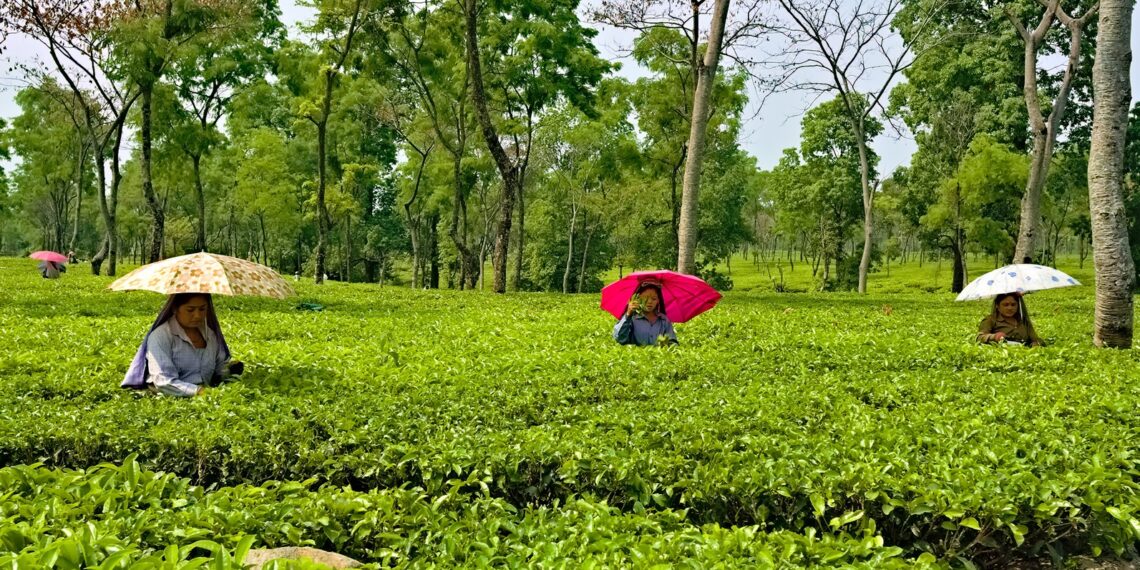GUWAHATI: The tea industry is grappling with the dual challenges of extreme weather and regulatory changes, making it a tough season for producers and consumers alike.
Consequently, tea prices have surged and are expected to remain high as heatwaves and floods during the peak harvesting season slash output in key producing regions, experts have opined.
During the last week of June, average tea prices surged to Rs 217.53 per kg, a nearly 20% increase from the previous year, as per data from the Calcutta Tea Traders’ Association.
In Assam, which accounts for more than half of the country’s tea output, severe river flooding in July has affected more than 2 million people.
“Extreme weather events are hurting tea production. Excessive heat in May, followed by ongoing flooding in Assam, are reducing output,” Prabhat Bezboruah, a senior tea planter and former chairman of India’s Tea Board, told an international news agency.
In 2023, India produced a record 1.394 billion kg of tea, but production in 2024 could fall by around 100 million kg, Bezboruah warned.
This production shortfall is expected to drive prices significantly higher, but financially weak and indebted producers are struggling to negotiate with powerful buyers during peak production months, a Kolkata-based trader explained.
Although tea production improved in June due to good rainfall providing respite from the heatwave, the subsequent flooding in July has once again hindered plucking in many districts of Assam.
“July is typically a peak production month, but this year we anticipate a shortfall of 15 to 20 million kg,” a Jorhat-based tea planter told the agency.
In May, India’s tea production plunged more than 30% from a year earlier to 90.92 million kg, marking its lowest for that month in over a decade.
Bezboruah further added that the government’s decision to ban 20 pesticides has also affected production.















